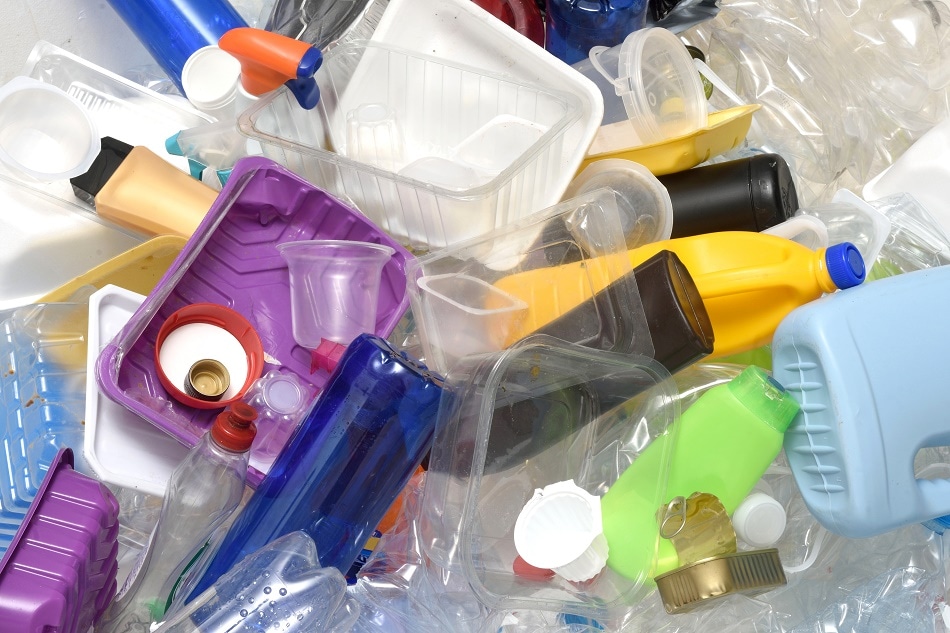
Image credits: Josep Curto/shutterstock.com
With the world’s industries looking to reduce their waste, and more initiatives being implemented to focus even more on recycling, the innovation of a new French startup has made a huge impact with major corporations.
The company, Carbios, seeks to solve a major recycling issue, through using enzymes to break down PET plastics that have previously been difficult to recycle. The results of their enzyme method are so effective that they claim no plastic is lost or wasted in the process. 100% of the product can be recycled, and this has drawn in financial backing from major global corporations.
Carbios Secures Two Patents
This year, Carbios successfully secured two U.S. patents for its innovative recycling method that works through using enzymes to break down, purify and reuse PET plastic waste. Currently, only a small percentage of PET plastics can be widely recycled, multicolored plastic, like food trays and polyester shirts are rarely able to be recycled.
However, the startup hopes to create a significant shift in the recycling industry, making recycling of all kinds of PET plastic a widespread possibility. There are plans to license the technology to recycling companies across the country to make this happen.
Enzymes Perfectly Breakdown Plastic
The company has developed a method that can break PET plastic waste for reuse, without wasting any of it. It works by adding pulverized PET plastic waste into a bioreactor, where water and enzymes are added to the waste, which is then heated and churned.
The enzymes break down the plastic waste within just a few short hours, leaving the waste in the form of monomers, the building blocks of plastic. These monomers are then separated and purified, ready to be converted into brand new plastic products.
The process they have created successfully works on any kind of PET product. It also has the advantage of being able to convert 100% of the waste into new material that maintains the same quality, whereas with traditional recycling there is a loss in quality. As well as this, the process has the advantage of being able to recycle colored bottles into transparent ones, by removing the dye, something which isn’t currently possible.
Research in this area was influenced by the discovery of plastic-eating bugs at a Japanese dump. Back in 2016, a new bacterium was discovered in a waste dump in Japan. The bacterium had naturally evolved to eat plastic, and scientists worked to identify the key enzyme which existed in the bacterium, allowing it to break down plastic.
Global Recycling Goals Pushing Demand
There is global pressure to reduce the amount of plastic that is being introduced into the environment. Carbios believes its innovation will help to make big steps towards this goal. Currently, the demand for recycling materials is greater than can be provided by current suppliers of recycled materials. This is in part due to the increased consciousness of companies, who are increasingly making environmental incentives a focus of their business plan.
For example, Nestlé has announced that by 2025 it plans to be using recycled plastic in 50% of all its packaging in the US. The company, alongside other industry leaders of PepsiCo and Suntory Food and Beverages, joined a consortium with L’Oreal and Carbios, The aim of which is to support the advancement of recycling technology, to help major corporations meet their goals.
The current global stance is that recycling needs to be a focus of governments and of large, global corporations. This focus is helping to push recycling technology forward, as more companies are willing to invest. Last year, a little under 300 organizations signed up to the New Plastics Economy Global Commitment, which aims to entirely eliminate the use of problematic or unnecessary plastic packaging by 2025. By the same year it also seeks to ensure that 100% of plastic packaging used can be recycled, composted or reused.
Disclaimer: The views expressed here are those of the author expressed in their private capacity and do not necessarily represent the views of AZoM.com Limited T/A AZoNetwork the owner and operator of this website. This disclaimer forms part of the Terms and conditions of use of this website.